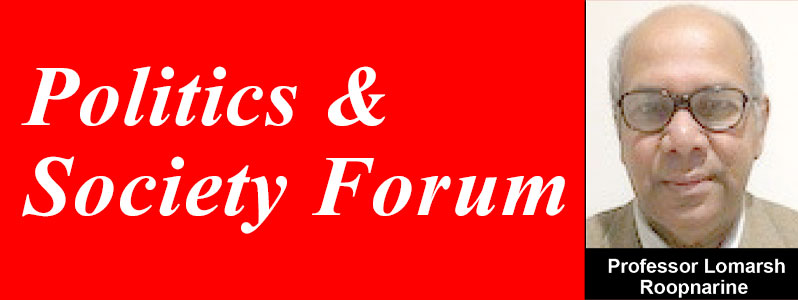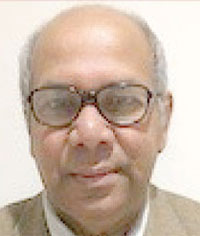MY past two columns espoused that the APNU+AFC coalition slipped into power in 2015 with much popularity, but, over a short period, embarked on a journey of self-destruction because of a lack of introspection, the interference with constitutional mandates, the over-reliance on the judicial system, and persistent pressure from the PPP/C opposition.
The reason for this situation was, in one short statement, a lack of confidence. On a macro-level, there was a dip in focus by the coalition brought about by the unexpected electoral victory in 2015. The coalition was still exuberant from a self-extended honeymoon. Some analysts called this behavior power drunk. I say that the acute political acme and antennae of the coalition went into hiatus.
On a micro-level, some individuals in the APNU+AFC coalition were not ready for leadership roles. To their credit, many joined the coalition without baggage, hoping to learn as they prodded along with the duties and responsibilities of leadership. Unfortunately, their roles turned out to be decorative to the coalition hierarchy. They toed the line, and, in exchange, enjoyed excessive pride among their supporters and communities.
They were enamored by being involved in a new political wave of ideas. To them, the revolutionary partnership of politics was a rarity in over fifty years in Guyana whereby different political factions came together and captured the mettle of leadership. I call this stable situation a false sense of political consciousness, borrowed of course, from Karl Marx’s theory of people’s misperceived position in society.
What did not weigh enough on the mind of coalition leaders was that electoral victory was conditional and seasonal. We know that limited support and access to power were real because in 2015 some 50 percent of citizenry did not vote for the coalition. More succinctly, however, the coalition’s unsavory efforts to hold on to power through tactical and despotic means demonstrated patterns of insecure leadership. It is noteworthy to reiterate that after the first years in office the coalition began to show signs that it could not rely on votes to retain power, hence the reasons for the shenanigans at GECOM.
So, what I have discussed above is the loose political nerve centre of the coalition, when scrutinized, reveals a disjointed partnership, courting disaster. Notwithstanding campaign rhetoric and empty promises, the coalition, nevertheless, made an amazing impact on the PPP/C’s sugar belt stronghold, amassing most of the 6,000 votes required to cross the victory post in 2015. This was well-earned political capital which the coalition squandered. Why the coalition did a volte-face and disturbed the lifeline of a supporting base that brought it to power reveals and represents one of the most elliptic decisions of Guyanese politics?
If the sugar industry was draining the national coffer, the application of draconian policies was not the panacea for economic upliftment or “rightsizing” because even the street committee would have recommended that that decision would have had the opposite effect: a blot on rural happiness. This is a classic example of how the coalition’s policies led to the using and losing of political capital unnecessarily.
The APNU+AFC coalition was, undoubtedly, plagued by corruption and controversy, but it would have survived another term in office if some forward-looking initiatives were directed to the sugar industry. In a worse-case scenario, the phasing out of the sugar estates should have happened over a five-year period, which would have ensured the coalition of retaining its so-called earned political capital. This is ring-fencing politics that would have succeeded when considering that voters in Berbice had reached a turning point whereby they were looking for economic development rather than embracing undisputed ethnic loyalty. This revolutionary voting pattern was not happenstance, but a groundbreaking and inexorable force that escaped the coalition’s radar. I call this negligence political cataract which begs the question: were leaders of the coalition trapped in the catacombs of governance?
If the coalition had missed how the closing of the sugar industry had affected its probability for good shepherdship then the results of the local election in mid-2018 were a possibility of them exeunt office in 2020. Predictably, the coalition dismissed the results of the local election as a misguided matter, pointing to how well it had performed while ignoring how the citizenry had suffered from the vagaries of rising unemployment, escalating crime, increased taxes, and so on. The coalition found itself mired in what is not rather than what is. The coalition was too wrapped up in toing and froing around buffoonery. The ominous signs were all there that the coalition had already taken up a care-taker status. The only thing missing was to institutionalize it, and that came by the way of the No-Confidence Motion, or so we thought (lomarsh.roopnarine@jsums.edu).




.png)









